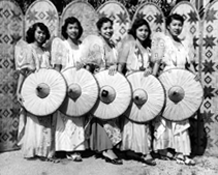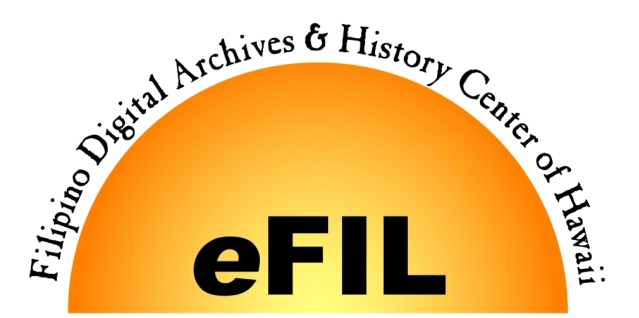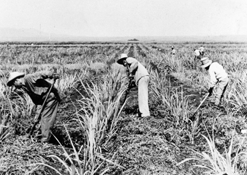


UNHEARD VOICES PROJECT
Nora
Gozon Tagalog
Nora Gozon Tagalog was born on 31 August 1951, in the Philippines, in a village near Davao, Mindanao. At age 12 she took care of her four younger siblings after her mother died — only a few months after her father already left for Hawaii. Life was difficult for Nora and her siblings because their grandparents believed the children should do farm work and not spend time studying.
Her "visions" gave her strength. One vision was her youngest brother being bitten by a snake, which made Nora realized that it was her utmost duty to take care of him. Another vision was the Virgin Mary "taking" her to Hawaii to show her to father, who seemed to have neglected his family in the Philippines. He eventually arranged for his family to migrate to Hawaii.
In April 1970 Nora, with her two sisters, two brothers and grandfather arrived in Hawaii. Nora faced and overcame difficulties as a new immigrant studying at Waipahu High School, juggling several part-time jobs to feed the family while finishing a degree at UH-Leeward Community College, and resisting eviction from her home in Ota Camp. She was a member of the Ota Camp community's Steering Committee at the old Ota Camp and the new Makibaka Village.
INTERVIEWER:
Melinda Tria Kerkvliet arrived in Hawaii in 1971. She participated in several anti-development protests in the 1970s, including those at Ota Camp, Chinatown and Waihole-Waikane. She has a Ph.D. in history from the University of Hawaii and has written a book on Filipino labor leader, Pablo Manlapit: Unbending Cane: Pablo Manlapit, A Filipino Labor Leader in Hawaii. In 1972 she participated in establishing Operation Manong, a federally-funded project which hired Filipino college students to tutor Filipino students at the public schools. The project has since broadened its scope and is now part of the University of Hawaii-Manoa as the Office of Multicultural Student Services.
Oral History Interview 08-31-2009
Oral History Interview 09-02-2009
PHOTOGRAPHS:
[soon to come]
The views and opinions contained in each oral history are solely those of the interviewee and interviewer and not necessarily those of eFIL, FAHSOH, FilCom, OMSS, HCH or the University of Hawaii.
HOME
|
Filipino-American
Historical Society of Hawaii
|
Help
Exhibits
| Publications
|
Collections
| Student/Teachers
Welcome
| About
| News
& Updates |
Giving
| Contact
Us
Copyright © 2006 by the Filipino-American Historical Society of Hawaii.